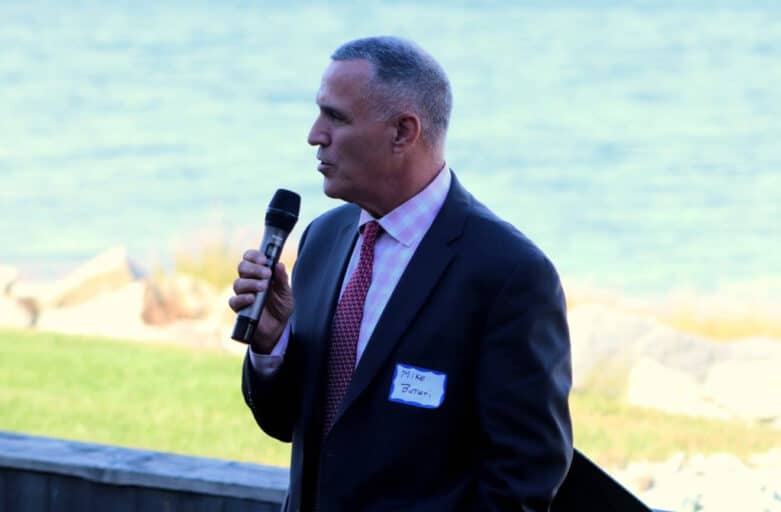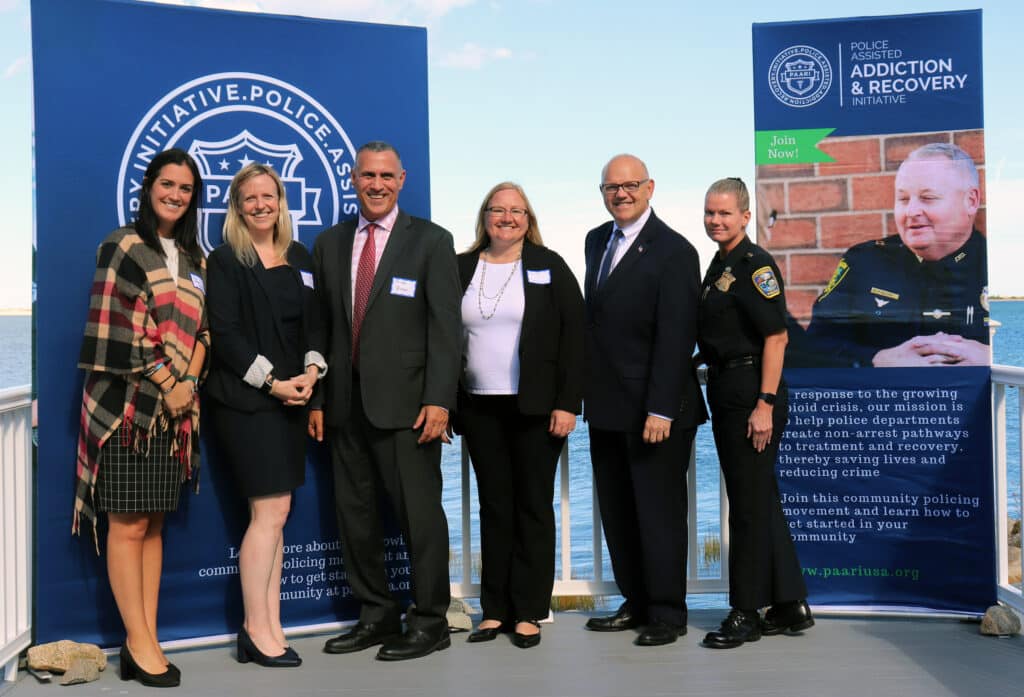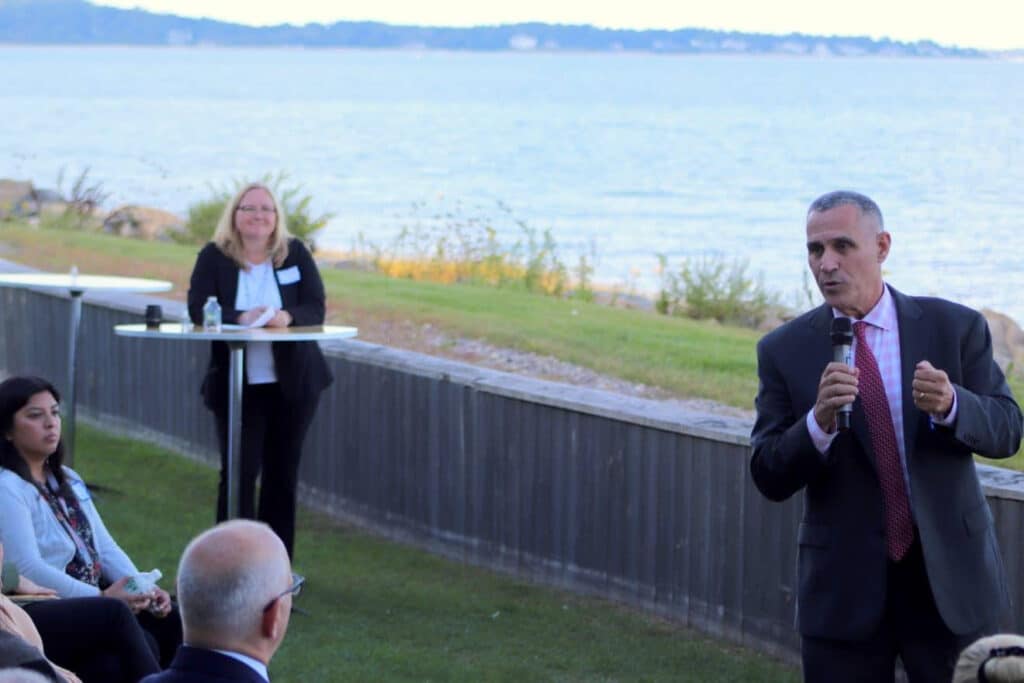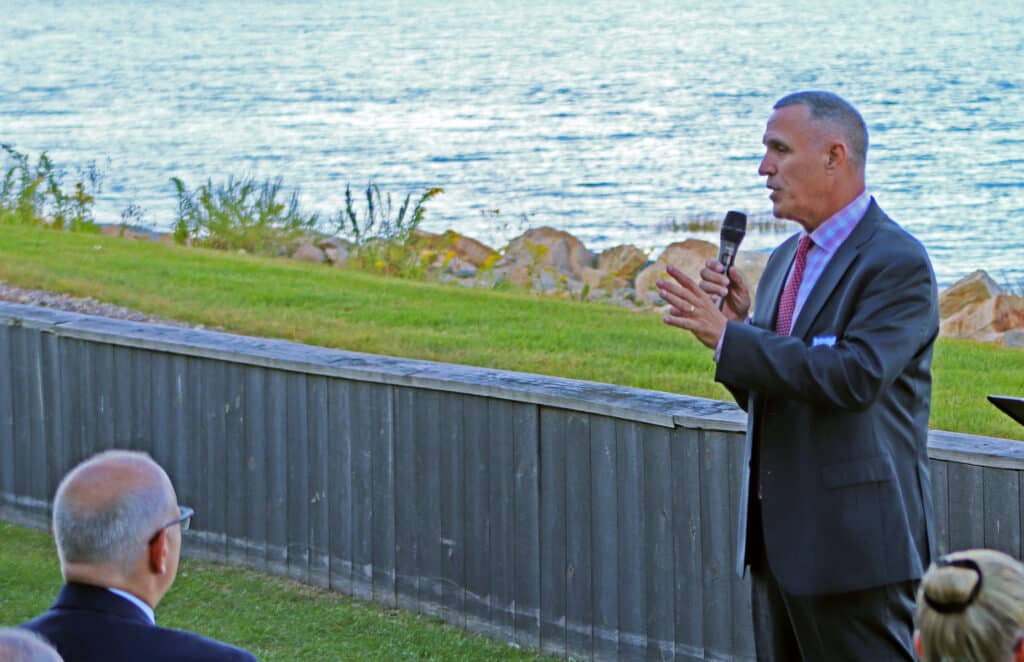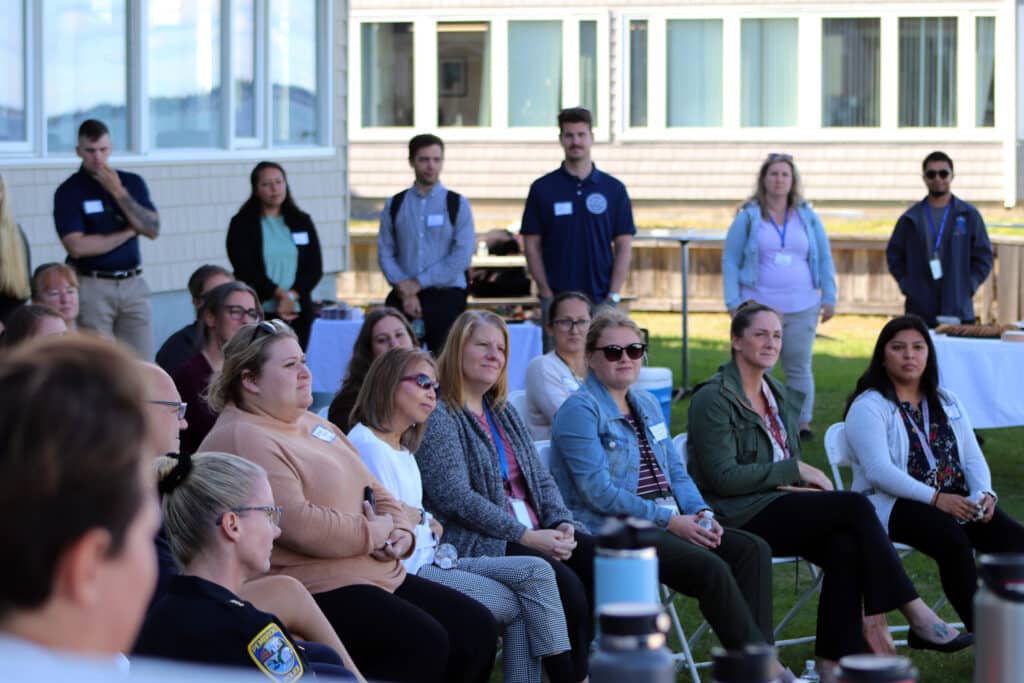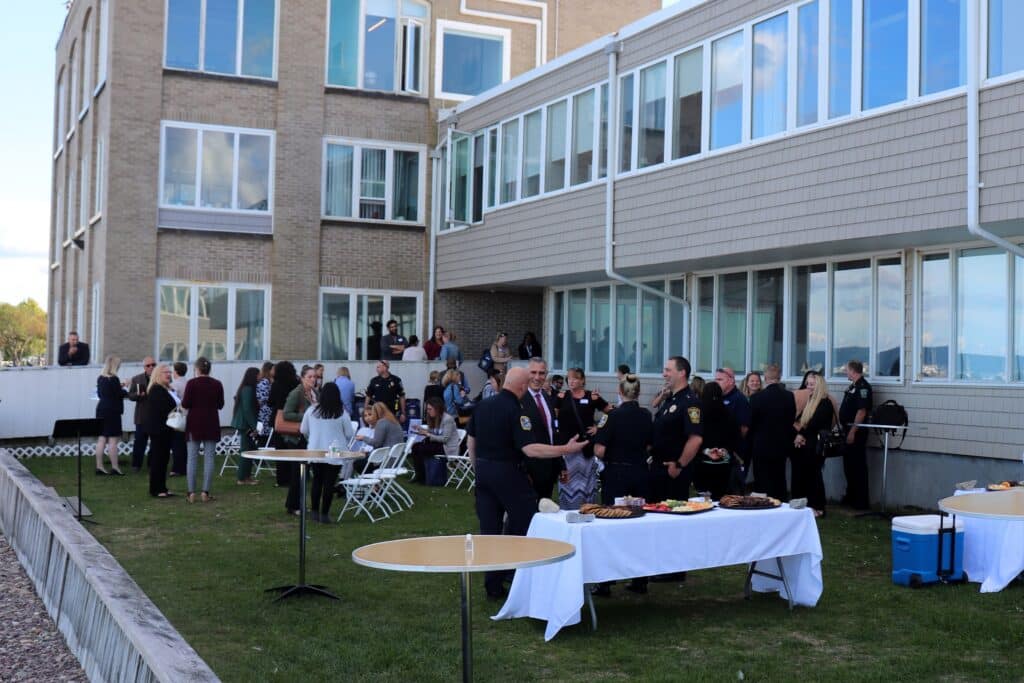PLYMOUTH, MASS. – Operation 2 Save Lives (O2SL) & QRT National Vice President of Business Development Mike Botieri recently joined Plymouth County, Massachusetts officials and Police Assisted Addiction & Recovery Initiative (PAARI) leadership to network and celebrate the success of the HUB initiative in Plymouth County.
The Plymouth County HUB convened a gathering of law enforcement, public health and other county stakeholders to promote networking and sharing of ideas on Wednesday, Sept. 28.
Those in attendance also included Plymouth County District Attorney Timothy J. Cruz and State Rep. Alyson Sullivan, as well as representatives from the county’s 27 police departments, public health partners and other stakeholders.
Plymouth County HUB was the nation’s first county-wide model to build a collaborative group of providers and law enforcement that addresses many risk factors, including substance use and behavioral health concerns, when it was created in 2020 by a collaboration of PAARI, Plymouth County Outreach (PCO), and Beth Israel Deaconess Hospital-Plymouth, with grant funding from South Shore Health.
The HUB uses data and input from stakeholders around the county to identify those most at risk due to 24 different risk factors. The HUB then focuses on situations where individuals and families face multiple areas of high risk. Risk factors monitored by the HUB include mental health, substance use disorder, housing insecurity, food insecurity, criminal involvement and more.
Those identified as having multiple risk factors are identified as “situations” for privacy purposes, and any law enforcement officer or provider can attend a weekly HUB meeting to bring situations to the HUB’s attention, prompting outreach efforts. The Situation Table and service providers can then intervene and offer services before a crisis occurs.
The HUB recently identified the 300th situation in Plymouth County, and has connected a majority of those individuals to resources and support.
Botieri, who is former chief of the Plymouth Police Department and helped to create PCO, implement four HUBs in Plymouth County, and was a founding member of the PAARI National Police Council, reflected on the start of Plymouth County’s initiative to help those living with substance use disorder back in 2015 through a county-wide opioid task force.
“At those task force meetings, we learned that we had subject matter experts in all the fields, and we learned that this was a disease and that the stigma was so strong,” he said. “People don’t know where to go. They’re afraid to come forward, and family members are afraid to come forward because their loved ones are using illicit drugs. They don’t know where the help is. We realized that we had to bring it to them. We also learned that it had to be in a timely fashion and in the critical intervention time period of 24-48 hours after an individual overdosed.”
Strong partnerships with Beth Israel Deaconess Hospital-Plymouth helped the program identify who needed help, however, it was necessary for an individual to overdose for the county program to know they needed help. This led to the creation of a system where an at-risk person or their family could come forward for help before they experienced an overdose.
“The HUB Situation Table is really the 2.0 version of that. You don’t need to overdose or be in crisis for us to help you,” Botieri said.
He added, “The HUB evaluates different risk factors, and when there’s so many risk factors there, we know a crisis will hit. We don’t know when, but we know they are at Acutely Elevated Risk and we can intervene now. Law enforcement does a great job at responding to things, but we don’t always have to wait until something happens. The HUB Situation Table is a phenomenal program, and O2SL & QRT National is proud to be providing training on it to dozens of communities across the country.”
Now, O2SL & QRT National is providing Situation Table training to approximately a dozen different states across the country, most recently in Nebraska, Kentucky and additional Massachusetts communities.
The trainings focus on preparing the attending agencies with the skills and lessons necessary to form a Situation Table. During the training, attendees learn about the Situation Table, how to determine Acutely Elevated Risk, and often complete a community mapping exercise and mock scenarios.
For more information on the Plymouth County HUB, visit: plymouthcountyhub.com.
About the HUB Situation Table:
The HUB Situation Table model was developed in Canada by Global Network for Community Safety (Global Network), a Canadian-based firm that focuses on innovations to improve community safety and wellbeing across Canada and in the U.S. Through the O2SL and QRT National – Global Network partnership, the organizations work cross-border to collectively provide multi-agency community responses to address issues of marginalization, for pre-crisis identification and crisis interventions, while creating pathways to care and support. Their combined expertise and suite of services – based on internationally recognized best past practices – help provide communities with tailored responses to meet their current needs, and the ability to rapidly adjust to an evolving landscape of risk factors including those around substance use disorders, mental health disorders, and related social health issues.
###

